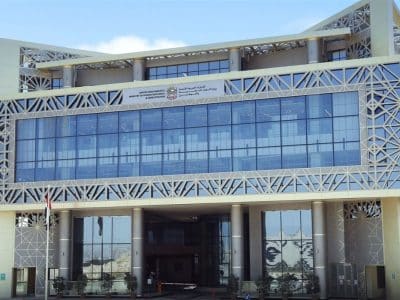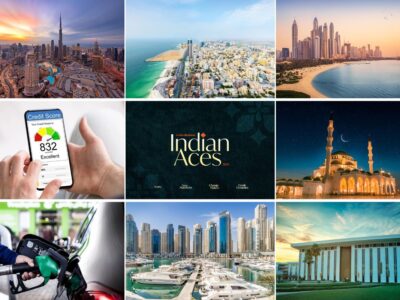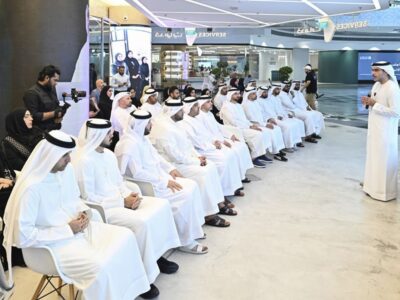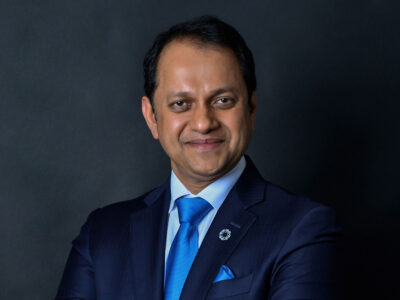KPMG, a leading professional services firm, has initiated ‘Blue Wave’, a programme aimed at enhancing the lives of blue-collar workers in the UAE.
The initiative comes as a recognition of the crucial role these workers play in driving the nation’s economy and infrastructure development.
In an exclusive interview with Arabian Business, KPMG Lower Gulf CEO and Senior Partner Emilio Pera discusses the motives behind this initiative, benefits and more.
What is KPMG’s Blue Wave initiative?
The Blue Wave initiative focuses on providing educational opportunities, skills development, and support to blue-collar workers, many of whom face challenges in career advancement due to limited access to resources.
“Education provides the foundational knowledge and skills, while experience allows individuals to apply and refine these skills in practical settings, enhancing their career prospects and earning potential,” Pera said, further highlighting the benefits of educating blue-collar workers.
“With the skills gained through education, workers are likely to be more efficient, leading to higher productivity. Therefore, with better training and upskilling, blue-collar workers can operate more effectively, manage resources better, and maintain safer work environments,” he said adding that through “continuous learning” and “upskilling,” they will be able to adapt to new technologies and methods that are “vital in keeping pace with global economic changes and innovations.”
According to Pera, this adaptability can lead them to develop more creative solutions and drive improvements in work processes.
Greater awareness about mental and physical health enables blue-collar workers to enhance their quality of life, which can open doors to better job opportunities, higher income, and improved living conditions, Pera explained, adding that consequently, this can contribute to providing them with greater job satisfaction and lower attrition rates within their professions.
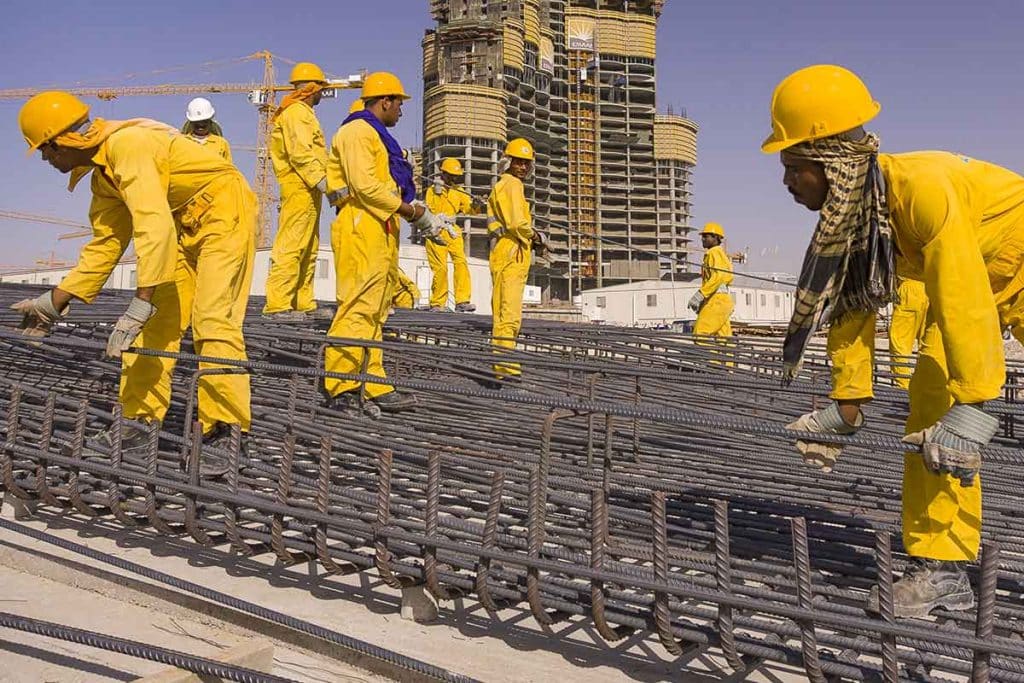
Free courses, workshops for blue-collar workers under new KPMG initiative
The Blue Wave initiative offers free courses and workshops in collaboration with organisations like the SmartLife Foundation, which works closely with the UAE’s blue-collar worker community.
“We have been actively involved in volunteering with labour camps and the SmartLife Foundation to provide Smart Computer classes. The initiative involves conducting weekly Smart Computer sessions at the labour camps situated around Al Quoz in Dubai, where our dedicated volunteers have been delivering engaging workshops designed to enhance the participants’ digital skills. These workshops cover essential applications such as Microsoft Word, Excel, and PowerPoint. We have also worked with the foundation to conduct online sessions with women from blue-collar jobs to empower them, by educating them about health, hygiene, technology, and other relevant topics,” Pera said.
Transportation, language barriers among challenges, says KPMG chief
However, implementing the Blue Wave initiative has not been without its challenges, but KPMG has been proactive in finding innovative solutions to overcome them.
Some of the challenges the company faced included availability, accessibility, language barriers, and sustainability concerns.
“These programmes are scheduled for Sunday mornings, a designated holiday for blue-collar workers, ensuring they are generally free to attend. However, occasional overtime commitments can interfere with their availability. To address this, we actively seek commitments from labour camp employers to manage work schedules effectively. This support helps ensure that work obligations do not prevent workers from attending these valuable classes,” Pera said, addressing the issue of availability.
Tackling accessibility concerns, KPMG has further partnered with camp leaders to arrange transportation services for the workers.
“Due to transportation costs involved, accessing the classrooms were becoming difficult for the blue-collar workers. To overcome this obstacle, we collaborated with camp leaders to arrange transportation services for the workers,” Pera said.

Language barriers posed another obstacle, but KPMG found a solution by strategically selecting volunteers from similar cultural backgrounds, Pera explained.
“Due to transportation costs involved, accessing the classrooms were becoming difficult for the blue-collar workers. To overcome this obstacle, we collaborated with camp leaders to arrange transportation services for the workers,” he said.
Pera further explained that ensuring sustainability was a key priority, and KPMG adopted a collaborative approach to tackle this challenge.
“To tackle this challenge, we adopted a collaborative approach by cementing strong partnerships with organisations like the SmartLife Foundation. By pooling resources and expertise, we can ensure the sustainability of our programmes and maximise their impact over the long term,” he said.
KPMG aims to bridge gaps in community through new blue-collar initiative
KPMG remains steadfast in its commitment to supporting the education and skills development of blue-collar workers in the UAE.
In a significant step forward, Pera revealed that earlier in March, the company inaugurated a dedicated classroom for Smart Computers at the Smart Life Foundation headquarters in Al Quoz, Dubai, equipped with 30 laptops, chairs, and tables, and a TV, “significantly enhancing the Foundation’s capacity to educate more blue-collar workers.”

Recognising the invaluable contributions of blue-collar workers, Pera also highlighted the firm’s dedication to the cause.
“These workers, often the unsung heroes behind the scenes, play a crucial role in building the country’s infrastructure and supporting the national vision and economy. We believe it is a priority to recognise their contribution and address gaps they face, especially when it comes to career growth and progression. KPMG remains committed to continuing our support through ongoing sessions. Together, we can make a meaningful impact on the lives of blue-collar workers in our community,” he concluded.
